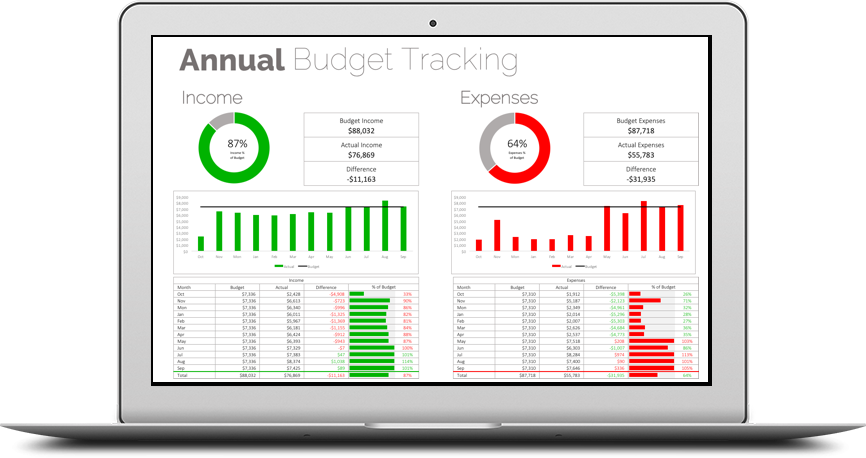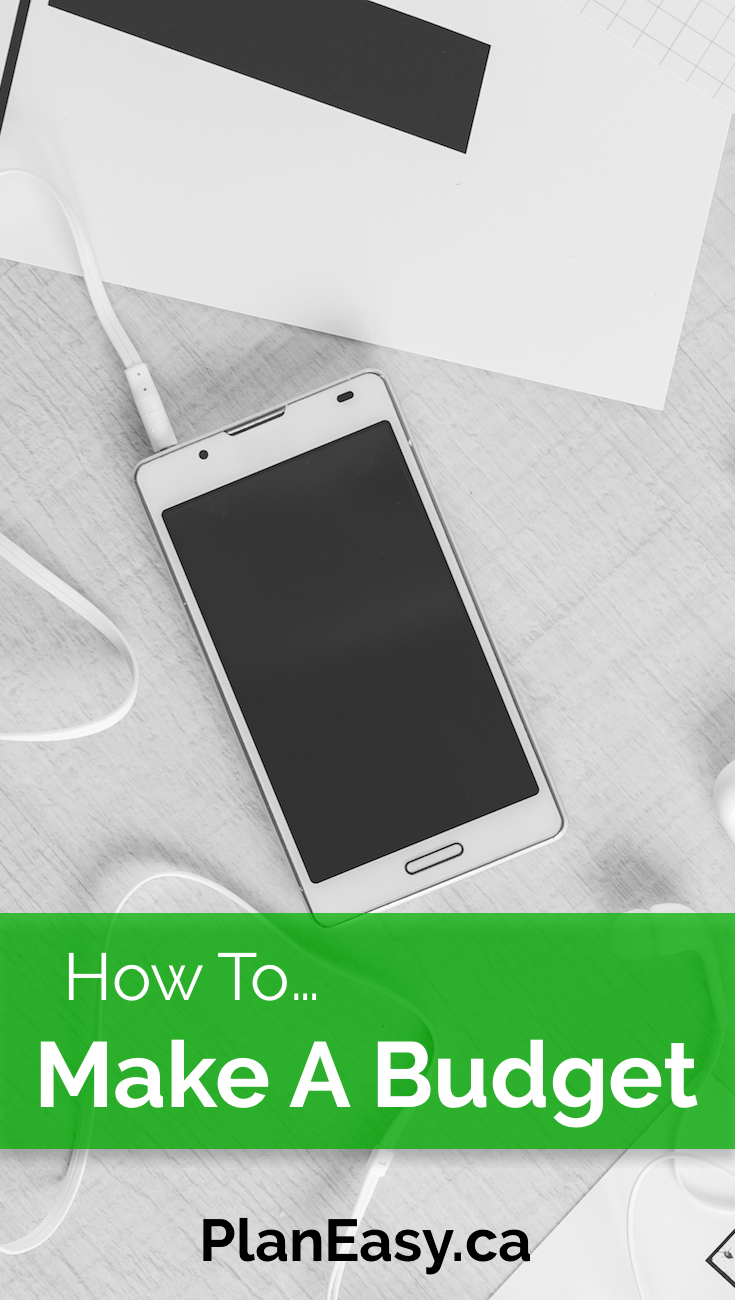How To Make A Budget
Let’s admit it, budgeting is a skill. Some of us were born budgeters. The rest of us need to work at it. For some of us it’s something we need to work hard at.
Natural budgeters can control their spending without needing a budget at all. For the rest of us, we need to have a budget to keep our spending in check.
Having a budget keeps your spending under control. Controlling your spending will let you save a bit of money each month and saving money on a regular basis is the cornerstone of a healthy financial life.
Budgeting can seem difficult (or even impossible) if you don’t follow the right steps.
If you make a budget the wrong way, you’ll find yourself always overspending each month. By making a budget the right way, you’ll have a better chance of hitting your budget each month.
How to make a budget the right way involves a bit of prep work. That prep work is essential if you want to build a good budget.

1. Track Your Spending
Tracking your spending is tedious. Tracking your spending is time consuming. Tracking your spending is sooooo important though.
Making a budget is kind of pointless if you don’t already have an idea of where your money is going.
Tracking your spending for at least 30 days is an important first step when creating a budget. (As an alternative to tracking your spending you can also use your credit card statements to look back 30-60 days, assuming you put most purchases on your card).
You can’t make a good budget if you don’t know where your money is currently going. If you skip this step your budget will be completely disconnected from reality. By tracking your spending and building a budget off that, you have a much higher chance of success.
2. Know How Much You Have To Spend
To make a good budget you need to know how much you have available for spending each month. Your income will help guide your budget. This is challenging for people with variable income.
In the end you want a budget that is cash flow positive. This means you want your expenses to be less than your income. You want to have a bit of cash left over. This doesn’t necessarily have to happen every month, especially for people with variable income, but over the course of 2-3 months your income should be greater than your expenses and you should have cash left over.
3. Know How Much You Want To Save
How much do you need to save each month to achieve your goals? This should be included in your budget.
Exactly how much you save each month will depend on your goals. For one person their savings goal could be $200 a month, for another person it could be $2,000.
Both numbers could be right, it just depends on their personal goals.
A healthy savings rate is between 10-20% of your take home pay. If you don’t have a specific savings goal in mind you should try to save somewhere between 10% and 20% of your take home pay each month.
“Unless you’re born a natural budgeter, having a budget will help keep your spending under control”
4. Make Your Budget
Now that you’ve done the prep-work we need to actually build your budget.
Step 1: Pay yourself first
Start your budget by saving a portion of your income. This could be 10%, 20% or maybe more.
Step 2: Fixed expenses
Next, set aside a portion of your income for fixed expenses. These are things like rent, utilities, monthly bills. This should be based on your actual spending from the last 30-60 days. Typically, this is around 50% of your income.
Step 3: Discretionary expenses
Then set aside a portion of your income for discretionary expenses. These are expenses that could fluctuate from month to month. It could be things like restaurant meals, clothing, gifts, etc. Again, this should be based on your actual spending from the last 30-60 days. Typically, this is around 30% of your income.
Step 4: Unexpected expenses
This last step is one that most people miss and it can mean disaster for their budget. You need to anticipate unexpected expenses in your budget. Things rarely go to plan. You need to set aside money each month to cover things like car repair, home repairs and general emergencies.
These probably aren’t things you’ll find in your spending from the last 30-60 days which is why you have to anticipate them a bit.
New blog posts weekly!
Tax planning, benefit optimization, budgeting, family planning, retirement planning and more...

5. Change Your Habits
Rarely does all your spending fit neatly within your income. Often decisions need to be made. Spending needs to be prioritized.
Not all spending is equal. Some of your monthly expenses are more valuable to you than others.
To ensure your budget is cash flow positive you need to reduce spending on expenses that provide the least value. These are the things you should cut first.
The fastest way to make quick changes is in your discretionary spending.
But, if you find that your discretionary spending is being cut too drastically then you may want to visit your fixed expenses. Changing your fixed expenses will require more work up front but it’s easier to maintain once you make a change.
Reducing your fixed expenses can also free up cash for discretionary spending. These are personal tradeoffs you need to make. A smaller apartment might be worthwhile if it frees up money for entertainment and travel.
Making these tradeoffs means you’re doing a good job with your budget.
6. Revise and Adjust
No budget is perfect. You’ll need to revise and adjust. Some people do this monthly, others do it every 6 months. Personally, I think once per year is good.
The fact is that spending habits change over time. Priorities change. Circumstances change.
The important thing is to revisit your budget regularly. Once per year is good but you can do it as often as you like.
Another good time to revisit your budget is when you have a big lifestyle change (marriage, house, change cities, kids etc).

How to Budget Your Money:
Budgeting is a skill. Some of us were born budgeters but some of us need to work at it.
If you’ve struggled with budgeting in the past, then you just need to try a different approach. Budgeting can seem impossible if you don’t follow the right steps. But if you stick with it, budgeting won’t seem so difficult after a while.
Natural budgeters seem to be able to control their spending without any help. For the rest of us, we need a budget to keep our spending in check.
Having a budget helps you to keep your spending under control. A good budget will let you save a bit of money each month and saving money is the cornerstone of a healthy financial life.
Join over 250,000 people reading PlanEasy.ca each year. New blog posts weekly!
Tax planning, benefit optimization, budgeting, family planning, retirement planning and more...
Join over 250,000 people reading PlanEasy.ca each year. New blog posts weekly!
Tax planning, benefit optimization, budgeting, family planning, retirement planning and more...





0 Comments